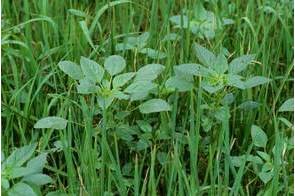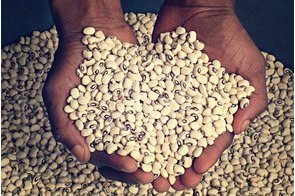New discovery offers hope against devastating groundnut disease

Summary
The crop is central to diets, incomes, and trade in Asia and Africa, especially in countries like India, Nigeria, and China, which together account for the bulk of global supply.
A major scientific breakthrough from the International Crops Research Institute for the Semi-Arid Tropics (ICRISAT) could help groundnut farmers worldwide avert billions in crop losses from stem rot, a disease that slashes yield by up to 80%, the agency has said.
In a study published in the Plant Genome journal, ICRISAT and partners mapped 13 genomic regions and 145 candidate genes linked to stem rot resistance. This discovery creates new opportunities to breed disease-resistant groundnut varieties, significantly lowering risks for farmers and strengthening food and nutrition security globally.
Groundnut is both an oilseed and a protein-rich legume, cultivated on more than 30 million hectares worldwide, with an annual global production of 50 million metric tons.
The crop is central to diets, incomes, and trade in Asia and Africa, especially in countries like India, Nigeria, and China, which together account for the bulk of global supply.
Stem rot disease, caused by the soil-borne fungus Sclerotium rolfsii, is one of the biggest threats to groundnut farmers.
Speaking on the study, Director General of ICRISAT, Himanshu Pathak, said this breakthrough has the potential to save farmers and national economies hundreds of millions of dollars each year by reducing yield losses from stem rot.
"This advance demonstrates the high return on investment that agricultural research brings to national economies, converting scientific discovery into practical solutions that safeguard farmers against one of the most destructive groundnut diseases,” said Dr. Pathak.
The study was conducted in partnership with the ICAR–Indian Institute of Groundnut Research (India), the Chinese Academy of Agricultural Sciences (China), and Acharya N.G. Ranga Agricultural University (India), with support from the Bill & Melinda Gates Foundation and the Indian Council of Agricultural Research.
Related
-
Tackling the menace of weeds in organic farming
The availability of more healthy foods grown in environmentally-friendly manner can be significantly increased if ...
-
Nothing less than a seed revolution for smallholder farmers
Farmers typically use two types of seed systems — formal and informal.
-
AfDB promotes agribusiness development at the African Green Revolution Forum
The 2016 AGRF hopes to advance policies and secure investments to impact the lives of millions of African farmers.









